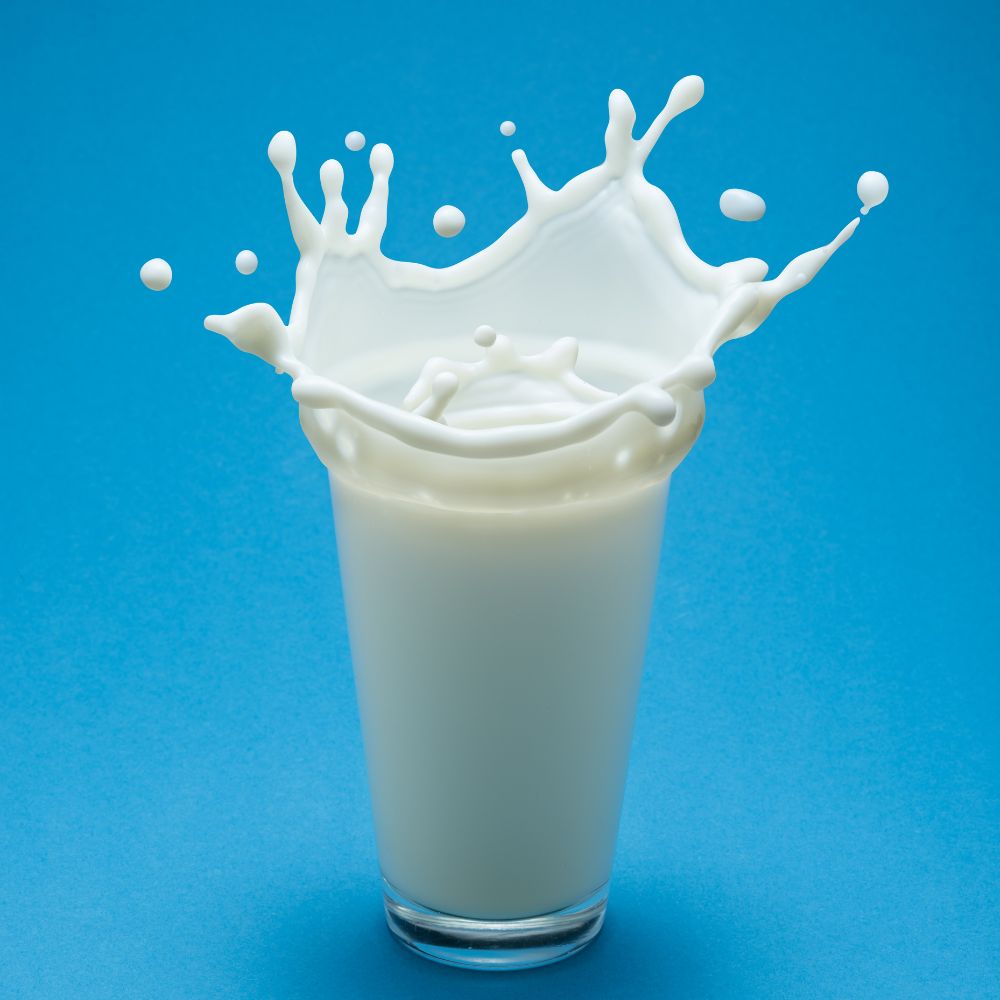When it comes to bodybuilding nutrition, protein is king. Among the many sources of protein available, milk often comes up as a staple. So is drinking milk truly beneficial for those looking to build muscle? In this article, we’ll explore the nutritional benefits of milk, its potential drawbacks, and how it fits into a bodybuilding diet, along with some alternatives for those who may not want to consume dairy.
Nutritional Benefits of Milk
- High-Quality Protein: Milk is a rich source of both whey and casein proteins. Whey protein is rapidly absorbed, making it ideal for post-workout recovery, while casein digests slowly, providing a sustained release of amino acids. This combination is excellent for muscle repair and growth.
- Rich in Calcium: Calcium is essential for muscle contraction and bone health. Consuming milk can help ensure adequate calcium intake, which is particularly important for athletes who place stress on their bones.
- Source of Essential Nutrients: Milk is packed with vitamins and minerals, including vitamin D, B vitamins, and potassium. These nutrients support energy metabolism, immune function, and muscle function, contributing to overall athletic performance.
- Hydration: Milk can help with hydration due to its high water content. Post-workout, it can serve as a refreshing and nutrient-rich beverage.
- Caloric Density: For those looking to gain weight and build muscle, whole milk provides a good balance of protein, carbohydrates, and fats. Its calorie content can help achieve a caloric surplus, essential for muscle growth.
Potential Drawbacks
- Lactose Intolerance: Some individuals may experience digestive issues when consuming dairy due to lactose intolerance. For these individuals, lactose-free milk or other alternatives may be better options.
- Caloric Overload: While milk can aid in muscle gain, it’s essential to monitor total caloric intake. For those trying to lose weight, consuming whole milk excessively could lead to unwanted weight gain.
- Dietary Restrictions: People following specific diets, such as veganism, will need to explore dairy-free options to meet their nutritional needs.
Milk and Muscle Recovery
Research indicates that milk, especially chocolate milk, can be an effective post-workout recovery drink. The combination of carbohydrates and protein helps replenish glycogen stores and repair muscle tissue. Additionally, the electrolytes in milk can aid in rehydration after intense workouts.
Alternatives to Milk
For those who are lactose intolerant, vegan, or simply prefer to avoid dairy, there are several milk alternatives that can still support muscle-building goals:
- Soy Milk: Soy milk is high in protein and contains all essential amino acids, making it a great alternative for muscle repair. It is often fortified with calcium and vitamins, similar to dairy milk.
- Almond Milk: Almond milk is lower in protein, but can be a good choice for those managing their calorie intake. Opt for unsweetened varieties to avoid added sugars and pair it with a protein source to meet your needs.
- Oat Milk: Oat milk has a creamy texture and is a good source of carbohydrates. While lower in protein, it can be beneficial as a post-workout drink when combined with a protein-rich food or supplement.
- Pea Milk: Made from yellow peas, pea milk offers a high protein content comparable to cow’s milk and is rich in iron. It’s also free from common allergens, making it a great option for many individuals.
- Coconut Milk: Coconut milk is rich in healthy fats, but low in protein. It can add creaminess to smoothies or dishes, but should ideally be paired with a protein source for muscle-building benefits.
- Rice Milk: Rice milk is a hypoallergenic option suitable for those with multiple food sensitivities. However, it’s lower in protein, so consider complementing it with other protein-rich foods.
Conclusion
Drinking milk can be beneficial for bodybuilding due to its high-quality protein, essential nutrients, and hydration properties. However, individual tolerance and dietary preferences are essential factors to consider. Whether you choose dairy or opt for plant-based alternatives, it’s crucial to ensure you’re meeting your overall protein and nutritional needs. With the right approach, milk and its alternatives can both play valuable roles in your muscle-building journey.

